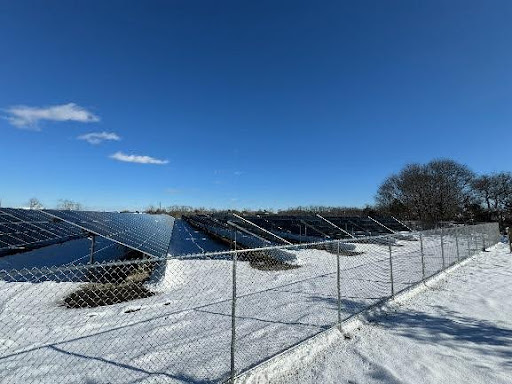
Utility Scale Solar and Battery System
- Home
- Utility Scale Solar and Battery System
Utility-scale solar projects and Battery Energy Systems
Utility-scale solar projects and Battery Energy Systems that serve a significant portion of the load across multiple regions are large-scale solar energy installations designed to generate electricity for utility companies or large consumers of energy. These projects typically have high capacity and are connected to the electrical grid to supply power to a wide geographic area.

Clean Energy Generation: Utility-scale solar projects generate electricity from renewable energy sources, such as sunlight, without emitting greenhouse gases or other pollutants. By displacing fossil fuel-based generation, these projects help reduce carbon emissions and mitigate climate change
Resource Efficiency: Solar energy is abundant and inexhaustible, making it a sustainable source of electricity generation. Utility-scale solar projects harness solar energy efficiently and can produce large amounts of electricity to meet the demand of multiple regions.
Land Use: While utility-scale solar projects require land for installation, they typically utilize previously disturbed or marginal lands such as brownfields, abandoned agricultural land, or desert areas. By siting projec ts on non-prime agricultural land or areas with low ecological value, the impact on valuable ecosystems and habitats can be minimized.
Water Conservation: Unlike conventional power plants that require large amounts of water for cooling and other processes, solar photovoltaic (PV) systems do not require water for operation, except for occasional cleaning. This reduces water consumption and helps conserve freshwater resources, especially in regions facing water scarcity.
Environmental Benefits: Utility-scale solar projects contribute to various environmental benefits beyond reducing greenhouse gas emissions. They help improve air quality by reducing the emission of pollutants associated with fossil fuel combustion, such as sulfur dioxide, nitrogen oxides, and particulate matter. Additionally, solar projects can help conserve biodiversity by preserving natural habitats and reducing habitat fragmentation associated with conventional energy development.
Socioeconomic Impact: Utility-scale solar projects can also have positive socioeconomic impacts, such as creating jobs, stimulating local economies, and diversifying energy sources. These projects provide opportunities for employment in construction, operations, maintenance, and other related industries, contributing to economic growth and community development.

Overall, utility-scale solar projects play a significant role in transitioning to a more sustainable and environmentally friendly energy system. By harnessing clean, renewable energy sources and minimizing environmental impacts, these projects contribute to a cleaner, healthier, and more resilient environment for current and future generations.
